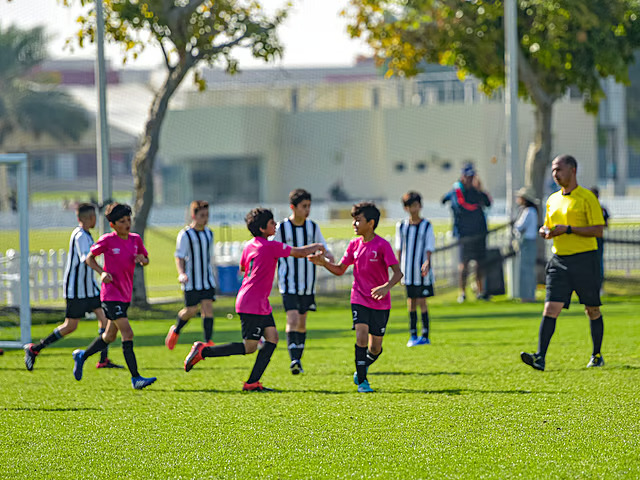Abu Dhabi: In alignment with Federal Law No. 3 of 2016 on child rights, known as the “Wadeema Law,” the Department of Community Development – Abu Dhabi (DCD) has introduced a comprehensive ‘Child Protection Policy’ in sports entities. This initiative is designed to foster a safe, inclusive, and healthy environment for children participating in sports across the emirate.
Developed in partnership with the Abu Dhabi Sports Council, the Family Care Authority, and the Abu Dhabi Early Childhood Authority, the policy applies to all sports organisations operating in Abu Dhabi. It also covers professionals and volunteers working in the sports sector outside educational institutions.
A public awareness campaign will accompany the rollout of the policy, aimed at educating stakeholders and reinforcing the importance of child protection in all sporting contexts.
- The right of every child to participate in sports.
- Zero tolerance for abuse.
- A shared responsibility for protection and accountability.
- Assurance of non-retaliation for reporting abuse.
These principles serve as the foundation for establishing procedures and safeguards across all sports facilities and activities.
Safeguards and preventive measures
The policy introduces clear mechanisms and standards to protect children from any conduct that could violate their rights, harm their interests, or cause physical or emotional injury. It also ensures that support is available for children who may be at risk of abuse, neglect, or violence while participating in sports.
Legal frameworks will be implemented to prevent individuals deemed a threat to children’s safety from working in or joining any sports entity. The policy mandates cooperation with relevant authorities to enforce these measures and uphold the rights of all child participants.
Mandatory reporting and accountability
A key requirement of the policy is the mandatory reporting of suspected or actual cases of abuse, neglect, or violence by all employees and volunteers who interact directly with children in sports entities. It outlines the responsibilities of coaches, staff, professional athletes, volunteers, and even parents and caregivers in identifying and responding to such incidents.
By promoting a culture of vigilance and accountability, the policy aims to improve children’s wellbeing, encourage respectful behavior, and maintain high standards of sportsmanship in a secure and supportive environment.
Strict prohibitions and legal oversight
The policy clearly prohibits all forms of child abuse — including physical, sexual, and psychological harm — as well as neglect, exploitation, bullying, and discrimination of any kind based on race, age, gender, nationality, religion, or developmental differences.
It emphasises the need for strict screening and monitoring processes to prevent individuals who pose risks from being placed in positions of trust within sports organisations.
Collaborative development
The policy was the result of extensive collaboration among major stakeholders in the health, education, and sports sectors. These include the UAE Pro League, the Abu Dhabi Department of Education and Knowledge (ADEK), the Ministry of Education, the Abu Dhabi Public Health Centre (ADPHC), and the Emirates Schools Establishment.
Empowering sports entities and families
Mohamed Helal Al Balooshi, Executive Director of the Community Engagement and Sports Sector at DCD, emphasised the policy’s broader societal impact.
“The Child Protection Policy in Sports Entities reflects our commitment to promoting the welfare of children and ensuring their safety in every aspect of life,” he said. “It supports the healthy development of children and aligns with the leadership’s vision to safeguard their rights and well-being.”
Al Balooshi added that the policy includes a detailed framework for implementation, including the appointment of child protection coordinators at sports facilities and mandatory training for all staff and volunteers. The policy also mandates clear protocols for reporting and addressing violations, thereby promoting a culture of transparency and trust.






